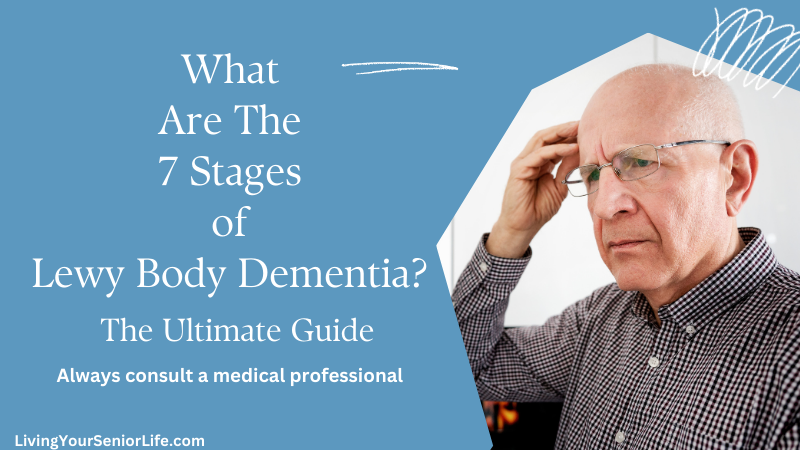Watching a loved one journey through dementia is a profoundly challenging experience. As their cognitive abilities gradually decline, families often find themselves navigating complex decisions about care and support. One of the most difficult choices can be determining when to transition to hospice care. When to call hospice for dementia often coincides with late-stage or end-stage dementia, where the focus shifts to palliative care designed to relieve symptoms and provide holistic support.
In this guide, we will explore the delicate balance of recognizing the right time to call hospice for a dementia patient. Understanding the signs, symptoms, and considerations involved can empower families to provide the best possible care for their loved ones during this stage of life.
Join us as we delve into the nuanced landscape of dementia care, offering insights and guidance to help families navigate this emotional and often overwhelming journey with clarity and compassion.
Key Takeaways:
- Hospice care caters to the comfort and holistic well-being of individuals in the final stages of dementia.
- An interdisciplinary hospice team creates personalized care plans to meet the patient’s condition and family’s needs.
- Hospice is accessible in multiple settings and typically covered by major healthcare providers and insurance plans.
Understanding Dementia and Hospice Care
Hospice care encompasses a team approach, with healthcare professionals like nurses, social workers, and hospice aides working together to address the physical, emotional, and spiritual needs of both the individual and their family members. This interdisciplinary hospice team, which can include specialized care for conditions like Lewy body or vascular dementia, forms a care plan that adapts to the specific needs and wishes of the dementia patient. Hospice care can be provided in various settings, including private homes, long-term care facilities, or hospice centers, and is often covered by Medicare, Medicaid, or private insurance in the United States.
Defining Dementia and Its Progression
Dementia is a collective term used to describe various symptoms of cognitive decline, such as memory loss, and is caused by different diseases affecting the brain. Alzheimer’s disease is the most common cause of dementia, followed by conditions like vascular dementia, Lewy body dementia, and frontotemporal dementia. These diseases lead to a progressive loss of memory, reasoning, and other cognitive functions, which ultimately affect a person’s ability to perform everyday activities.
As dementia advances, especially into late-stage dementia or end-stage dementia, patients often experience a significant decrease in their quality of life. Family caregivers may observe personality changes, increased memory loss, and a decline in the ability to care for themselves. This progression can greatly impact the life expectancy of individuals with dementia and lead to difficult decisions about end-of-life care.
Overview of Hospice Care
Hospice care is designed to provide comfort and support to people with a terminal illness nearing the end of life. It focuses on palliative care—the relief of symptoms and stress—rather than curative treatment. A multidisciplinary hospice care team typically includes doctors, nurses, home health aides, social workers, and clergy, who work together to address the physical, emotional, and spiritual needs of both hospice patients and their families in the final stages of dementia.
When it comes to end-of-life care for dementia patients, hospice services offer an extra layer of support. This can include pain management, help with personal care, and medical equipment. Family members often find hospice offers them an invaluable resource, aiding with symptom management and providing respite care, which allows primary caregivers a break from the demands of hands-on care.
Selecting hospice care services can be a right choice, granting peace of mind to families during this difficult time, by knowing their loved one is receiving special care that honors their dignity and provides quality of life in their final days.
Holistic and Interdisciplinary Care Approaches
When contemplating hospice services for dementia patients, it is essential to consider holistic and interdisciplinary care approaches that concentrate on both symptom relief and providing robust psychological and spiritual support.
Physical and Psychological Symptom Relief
Patients with advanced dementia may experience a range of dementia symptoms including anxiety, agitation, and physical discomfort. Hospice services focus on pain management and symptom management, using medication and medical care tailored to the individual’s needs. Hydration and nutrition, important for maintaining comfort, become key components of personal care. Personalized care plans are developed to alleviate pain and manage symptoms, aiming to enhance the quality of life in the final days.
- Family caregivers, often the primary caregivers, can greatly benefit from the additional support in managing complex medical needs provided by the hospice care team.
- Medical equipment and supplies necessary for home care are typically provided by the hospice provider, reducing the burden on family members.
Spiritual and Emotional Support
At the heart of end-of-life care is the recognition of the profound spiritual and emotional needs of hospice patients and their families. This includes:
- Spiritual support, regardless of a person’s faith or beliefs, to help individuals find peace of mind during this difficult time.
- Counseling and bereavement support for both patients and family members to navigate through grief and emotional challenges.
- Respite care for family caregivers to provide short-term relief from the demands of hands-on care.
Comfort care and spiritual care services seek to honor the patient’s and family’s wishes, assisting in tough decisions including those related to funeral arrangements and additional support services. These comprehensive care methods are designed to offer both patients and their loved ones peace of mind and dignity during the final stages of dementia.
At What Stage Of Dementia Is Hospice Care Typically Considered Appropriate?

The right time to consider hospice services often begins when dementia patients experience significant declines in their abilities to perform everyday activities and when life expectancy is considered to be six months or less.
For patients with various forms of dementia, including vascular dementia, Lewy body dementia, or frontotemporal dementia, hospice care becomes appropriate during late-stage dementia. At this point, individuals may show severe cognitive decline, memory loss, and be unable to engage in daily activities without assistance.
Family members and family caregivers face difficult decisions during this period. They may collaborate with social workers, healthcare providers, and the hospice team to develop a comprehensive care plan tailored to the patient’s condition. The hospice care team offers an extra layer of support, encompassing medical care, palliative care, and personal care, which caters to the emotional needs and spiritual needs of both hospice patients and their families.
By providing respite care, access to necessary medical supplies, and pain management, the assigned hospice nurse and home health aides aim to alleviate the burdens of primary caregivers during this tough time. Entrance into a long-term care facility may be considered if the level of hands-on care required exceeds what can be provided at home.
It’s important for family members to communicate with healthcare professionals to understand fully when their aging parents or loved ones reach the criteria for hospice eligibility. This ensures that the final days of those with end-stage Alzheimer’s disease or related dementias are managed with dignity and respect, focusing on comfort rather than curative treatment.
Recognizing the Signs of Late-Stage Dementia
When caring for someone with dementia, identifying the transition to the late stages is crucial for providing the best quality of care and preparing for the final days. Dementia patients may exhibit a range of symptoms that signal a decline to end-stage dementia, requiring specialized end-of-life care.
Symptom Management
In late-stage dementia, dementia symptoms become pronounced; patients often experience severe cognitive decline and memory loss, impacting daily activities. Symptoms can include incontinence, difficulty swallowing, and weight loss. Family caregivers might notice their aging parents having increased difficulty with everyday activities, advancing to the point where personal care from healthcare professionals becomes necessary.
Palliative care, an integral part of hospice services, focuses on pain management, comfort, and maintaining quality of life. If a patient’s condition includes chronic pain or discomfort due to conditions like chronic obstructive pulmonary disease or congestive heart failure, hospice staff can provide medical equipment and medications designed for pain relief. Moreover, social workers and spiritual care advisors offer emotional and spiritual support to help both the patient and family members through this difficult time.
Determining Life Expectancy
Estimating life expectancy in dementia patients can be challenging. However, signs indicating a potentially limited life expectancy include not only the progression of dementia symptoms but also related health complications. In end-stage Alzheimer’s disease, vascular dementia, or other forms of dementia like Lewy body or frontotemporal dementia, complications such as renal failure, urinary tract infections, or heart disease may arise, altering the care plan.
Signs That It’s Time to Call Hospice

When dementia patients progress to the final stages of their illness, family members and family caregivers face difficult decisions about end-of-life care. Recognizing when it is the right time to contact a hospice provider can be challenging, but there are key indicators that suggest it’s time to consider hospice services.
- Advanced Dementia or Late-Stage Alzheimer’s Disease: You might notice marked cognitive decline, memory loss, and difficulty with everyday activities.
- Decreased Life Expectancy: If a healthcare professional estimates a life expectancy of six months or less, it may be time for hospice care.
- Symptom Management: Pain management and symptom management become more challenging, pointing towards a need for palliative care.
- Change in Functional Status: An inability to perform activities of daily living—like dressing, eating, or personal hygiene—indicates a transition to late-stage dementia.
- Recurrent Complications: Frequent infections, such as urinary tract infections or pneumonia, often accompany end-stage Alzheimer’s disease and related dementias.
- Caregiver Stress: Primary caregivers experiencing overwhelming stress can benefit from respite care and an extra layer of support from a hospice team.
- Spiritual and Emotional Needs: Hospice provides spiritual care and addresses the emotional needs of patients and their families, offering peace of mind during this difficult time.
Eligibility and Access to Hospice Services
Hospice eligibility criteria often consider if an Alzheimer’s patient or individuals with related dementias are in the final stages, where curative treatment is no longer effective, and life expectancy is six months or less. At this juncture, considering hospice care services can be the right choice to support the primary caregiver and the family through the provision of respite care, hospice care team assistance, and an extra layer of support for managing symptoms.
Family members should consult with healthcare professionals to discuss the patient’s condition and determine if hospice eligibility criteria are met. In determining the appropriate time to access hospice services for a loved one with dementia, it is essential to understand the specific eligibility criteria and how insurance, including Medicare and Medicaid, plays a role.
Hospice Eligibility Criteria
Dementia patients, including those with Alzheimer’s disease or related dementias like Lewy body or vascular dementia, may qualify for hospice care when they experience significant decline in their health. Eligibility for hospice is generally considered when a patient has:
- Life Expectancy: A prognosis of 6 months or less if the illness runs its normal course.
- Symptom Management: Increased difficulty managing pain, distress, or other symptoms of dementia.
- Daily Activities: A decline in performing everyday activities, such as dressing, bathing, and eating.
- Cognitive Decline: Advanced cognitive decline, including immense memory loss, personality changes, and inability to communicate effectively.
Insurance and Medicare Information
A hospice provider is responsible for certifying eligibility, and services can typically be covered by private insurance, Medicare, or Medicaid in the United States.
Medicare Coverage: If qualified, Medicare Part A can fully cover hospice services, with no cost to the patient or family for care related to the terminal illness, including medical equipment and supplies, nursing care, and social and spiritual support.
Medicaid and Private Insurance: Most state Medicaid programs and private insurance plans also cover hospice services. Coverage can include home health aides, personal care, and various forms of palliative care.
Check with the specific hospice provider and your insurance or Medicare for detailed information about the coverage and any necessary paperwork. Hospice staff are usually well-versed in these details and can help guide you through the process to ensure that your aging parents or other older adults receive the comprehensive care they need during their final days.
Creating a Supportive Environment

When the time comes to call hospice for a loved one with dementia, it’s crucial to create an environment that addresses both emotional and physical needs. This context provides comfort, minimizes anxiety, and supports the quality of life in their final days.
Family and Professional Caregivers
Family caregivers are often at the frontline of providing care for dementia patients. As dementia symptoms advance, your role shifts from supportive assistance to a more intensive form of care. Collaborating with hospice services can alleviate some of the burdens during this tough time.
- Hospice services include:
- Emotional and spiritual support
- Respite care opportunities
- Assistance with planning and education for family members
Professional caregivers from the hospice team can assist with pain management and support your loved one through the final stages of dementia. This collaboration ensures that your loved one’s quality of life is prioritized and offers peace of mind to you and your family members.
Medical and Personal Care Equipment
As dementia progresses, your loved one may require a range of medical and personal care equipment to maintain comfort and manage symptoms. Hospice providers can often facilitate access to necessary medical equipment, simplifying the logistics of acquiring the right tools for symptom management. By securing the right equipment, families can ease the everyday activities of their loved ones, making this difficult time a bit more manageable.
- Essential equipment may include:
- Bed types adjusted for safety and comfort
- Mobility aids to ensure safe movement
- Personal care products to manage incontinence discreetly
- Specific medical supplies needed to address dementia-related health concerns
Planning and Preparing for End-of-Life
When addressing end-of-life for someone with advanced dementia, it’s crucial to focus on ensuring comfort and preserving quality of life. Creating a robust care plan with hospice services can offer both you and your loved one the specialized support needed during this time.
Legal and Medical Decision-Making
Creating a comprehensive care plan often begins with advanced care planning. This involves legal documents like advance directives and establishing a healthcare power of attorney. It’s essential to discuss the patient’s condition with a healthcare professional to understand the life expectancy and dementia symptoms. These conversations can guide difficult decisions about medical care and the use of medical equipment. It’s important for family members to be involved, ensuring that the hospice medical director and the hospice team respect the wishes of all involved, especially those of the person with end-stage dementia.
FAQs Regarding Hospice Care
What are the Medicare guidelines for admitting a dementia patient into hospice care?
Medicare specifies that dementia patients may be eligible for hospice care if a healthcare provider certifies that they have a life expectancy of six months or less should their disease follow its normal course. Eligibility for hospice services is often based on the progression of the disease and the presence of related symptoms rather than a specific time frame.
How is the FAST scale utilized in determining hospice eligibility for dementia patients?
The Functional Assessment Staging Tool (FAST) scale helps healthcare professionals assess the level of decline in dementia patients. Advanced dementia, often indicated by the inability to perform daily activities, could signify eligibility for hospice care services, focusing on comfort in the final stages of life.
What are the specific criteria for providing in-home hospice care to patients with dementia?
In-home hospice care for dementia patients requires that they display signs of end-stage dementia, such as severe cognitive decline and limited physical abilities. The care plan typically includes pain relief, symptom management, and support services provided by a hospice care team, including social workers and home health aides.
How do palliative care and hospice differ for patients with dementia, and when is each suitable?
Palliative care can be appropriate at any stage of dementia, focusing on relief from symptoms and stress. In contrast, hospice care is for patients in the final stages of a terminal illness when curative treatment is no longer sought. Both emphasize improving quality of life but at different points in the disease progression.
Conclusion
Making the decision to call hospice for a loved one with dementia is never easy, but it is an important step in ensuring their comfort and quality of life during the later stages of the disease. By recognizing the signs and symptoms that indicate a transition to hospice care may be appropriate, families can provide their loved ones with the support and dignity they deserve.
Throughout this guide, we’ve explored the complexities of dementia care and the considerations involved in determining the right time for hospice involvement. We’ve highlighted the importance of open communication, collaboration with healthcare professionals, and honoring the individual needs and wishes of the patient.
As you embark on this journey with your loved one, remember that you are not alone. Reach out to support networks, seek guidance from healthcare providers, and trust your instincts as you navigate the challenges of dementia caregiving. By approaching this process with compassion, understanding, and a commitment to providing the best possible care, you can ensure that your loved one receives the comfort and support they need during this difficult time.
Thank you for joining us on this exploration of when to call hospice for dementia. May you find strength, solace, and clarity as you continue to journey alongside your loved one with grace and resilience.









